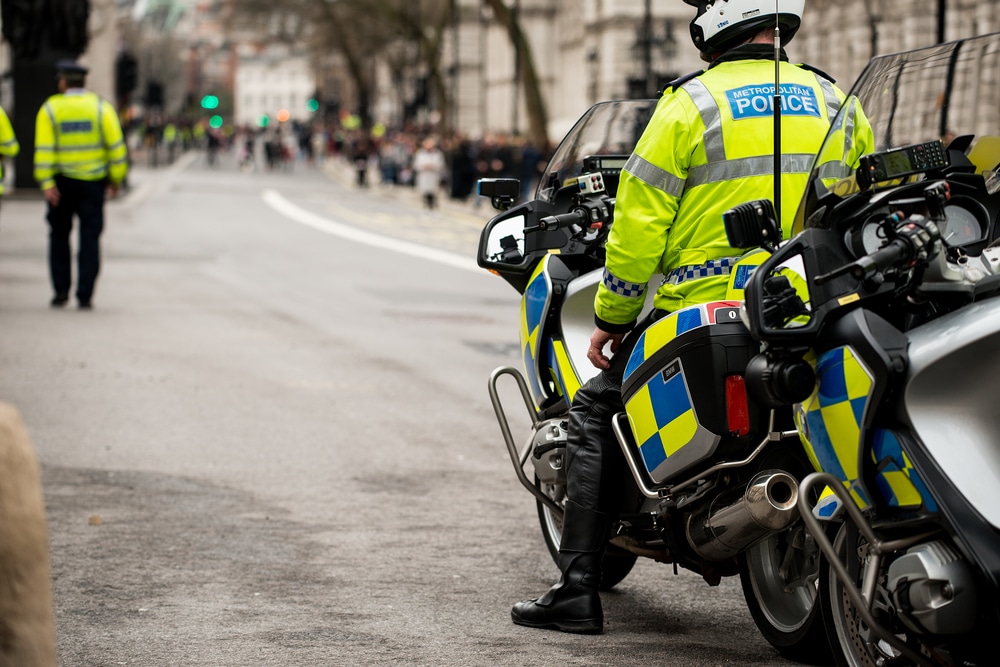
The Queen’s State Funeral will involve 10,000 police officers in the biggest single security operation the country has ever seen.
With world leaders and many hundreds of thousands of mourners anticipated to attend, the threat levels in the capital are “through the roof,” according to industry experts.
Thousands of Metropolitan Police personnel will be drafted into action throughout the period of national mourning, which has now officially begun and lasts until the funeral itself.
It is anticipated all leave and scheduled training will be cancelled with the possibility of extra officers drafted in from other forces, including Kent and Surrey.
With kings, queens, presidents and prime ministers in attendance, many extra close protection specialists will be required from other forces across the UK.
A vast influx of mourners lining the capital’s streets will necessitate a huge logistical crowd control operation alone.
Security expert Philip Ingram said the State Funeral has been rehearsed for many years.
He told SJUK: “The funeral operation has been carried out once or twice a year, in small parts each time, and done usually at three or four in the morning so nobody sees it.”
Mr Ingram said that Operation London Bridge, the codename for arrangements surrounding the Queen’s death, is in place to cover the anticipated eventualities.
He added: “It’s a well-rehearsed process to usher any threat away from the principals, bearing in mind that every global leader will be in London, putting the threat risk through the roof.”
Terrorists, extremists and anti-monarchists might plan to make their mark on the day, he said.
In a calendar year, the biggest event staged in London is the Notting Hill Carnival, using 6,000 police officers.
A decade ago, during the London Olympics, 10,000 were on duty each day.
Buckingham Palace has announced the State Funeral will be preceded by a period of Lying-in-State after the Queen is returned to London from Scotland.
No dates have yet been confirmed for the funeral and further details of these events will be announced by the Royal Household later.
The Royal Family will undertake a separate period of Royal Mourning, subject to the wishes of The King, said Buckingham Palace.
Bob Broadhurst, head of policing for the London 2012 Olympics, told the Press Association: “Clearly, you need to manage crowds. Unfortunately, large numbers of people also bring in criminal opportunities, so you have to manage crime.
“You have to manage the basics like lost children, all the other stuff that goes with that.
“Clearly, terrorism will be a factor, security is a big issue right from the outset.
“Not necessarily the more organised terrorist groups but lone individuals, that has to be factored in as well.”
Members of the public are expected to be able to pay their respects as the Queen lies in state from next week and numbers are expected grow steadily until the State Funeral itself.
The Met will be responsible for the protection of many hundreds of public figures and foreign dignitaries attending the funeral.
Mr Broadhurst said: “By the end of the week, you start to click in to what will be…the biggest security operation the country has ever seen.
“Practically every nation on earth is going to want to send their king, queen, prime minister or president for the funeral.”
Former counter-terrorism national co-ordinator Nick Aldworth said there will be a “significant armed operation”, with officers on patrol and queues formed in a way so people are not crushed and lorries and cars cannot be driven into them.
Rooftop firearms specialists will be in place while the cortege is moving and under helicopter escort anywhere outside of London.
Officers will be on alert for knife, lorry and bomb attacks.
Mr Aldworth said: “Clearly thousands of people gathered creates an attractive opportunity for any of those methodologies.”
But some threats are “easier to manage than others”, he added.
He said bladed or blunt weapons are easiest to acquire and conceal while bombs need expertise and planning.
Preparations will also involve City of London and British Transport Police, as well as staff from the Royal Parks, Transport for London and Westminster Council. For details of the the Queen’s State Funeral, go to https://www.royal.uk/
